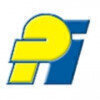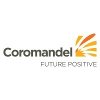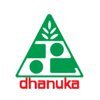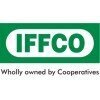
i
Deccan Fine Chemicals
Filter interviews by
Clear (1)
Deccan Fine Chemicals Executive Trainee Interview Questions and Answers
Deccan Fine Chemicals Executive Trainee Interview Experiences
1 interview found
I applied via Referral and was interviewed before Jun 2023. There were 2 interview rounds.
(1 Question)
- Q1. Tell me about yourself?
(1 Question)
- Q1. What is the future of HR?
- Ans.
The future of HR involves leveraging technology, focusing on employee experience, and adapting to changing workforce demographics.
Increased use of AI and automation for recruitment and performance management
Shift towards remote work and flexible work arrangements
Focus on employee well-being and mental health
Emphasis on diversity, equity, and inclusion initiatives
Utilization of data analytics for decision-making in HR p
Top trending discussions






Interview questions from similar companies
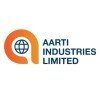
I applied via Recruitment Consulltant and was interviewed before Apr 2022. There were 2 interview rounds.

(4 Questions)
- Q1. Tells me about your self
- Q2. Need to update abou education and working experience
- Q3. Did you have working experience in sap
- Q4. If you have experienced in sap the need explain in details
Interview Preparation Tips
- SAP

Interview Questionnaire
1 Question
- Q1. What do you know about the company? Explain use of 1 or 2 chemicals.
Interview Preparation Tips

I applied via Referral and was interviewed in Nov 2019. There were 3 interview rounds.
Interview Questionnaire
1 Question
- Q1. Instrumentation safety, selection, SIL, according to Hazardous area classification
Interview Preparation Tips

I applied via Walk-in and was interviewed in Nov 2020. There were 5 interview rounds.
Interview Questionnaire
4 Questions
- Q1. Full GMP
- Q2. CGMP
- Q3. Chemical reaction
- Q4. Document
Interview Preparation Tips

I was interviewed in Mar 2021.
Interview Questionnaire
1 Question
- Q1. Question related to basic science conpects, safety , process and equipment operations, reactions, GMP and Documentation.
Interview Preparation Tips

I applied via Referral and was interviewed before May 2021. There were 3 interview rounds.
(1 Question)
- Q1. Types of fire. Basic safety questions. Calculation of cooling tower.
(1 Question)
- Q1. Basic question about previous experience
Interview Preparation Tips

I applied via Referral and was interviewed before May 2021. There were 3 interview rounds.
(1 Question)
- Q1. Types of fire. Basic safety questions. Calculation of cooling tower.
(1 Question)
- Q1. Basic question about previous experience
Interview Preparation Tips

Deputy Manager Interview Questions & Answers
Navin Fluorine Internationalposted on 28 Sep 2021
I applied via Recruitment Consultant and was interviewed before Sep 2020. There were 3 interview rounds.
Interview Questionnaire
2 Questions
- Q1. Where do you find your self after 5years?
- Q2. What is your career objectives?
Interview Preparation Tips


(1 Question)
- Q1. Job profile about past organization
Interview Preparation Tips
Deccan Fine Chemicals Interview FAQs
Recently Viewed
Tell us how to improve this page.
Deccan Fine Chemicals Interviews By Designations
- Deccan Fine Chemicals Process Engineer Interview Questions
- Deccan Fine Chemicals Operations Engineer Interview Questions
- Deccan Fine Chemicals Graduate Trainee Interview Questions
- Deccan Fine Chemicals Graduate Engineer Trainee (Get) Interview Questions
- Deccan Fine Chemicals QC Chemist Interview Questions
- Deccan Fine Chemicals Maintenance Engineer Interview Questions
- Deccan Fine Chemicals Shift Engineer Interview Questions
- Deccan Fine Chemicals Senior Executive Interview Questions
- Show more
Interview Questions for Popular Designations
- Trainee Interview Questions
- Graduate Engineer Trainee (Get) Interview Questions
- Management Trainee Interview Questions
- Engineer Trainee Interview Questions
- Graduate Trainee Interview Questions
- Software Engineer Trainee Interview Questions
- Diploma Trainee Engineer Interview Questions
- Internship Trainee Interview Questions
- Show more
Deccan Fine Chemicals Executive Trainee Interview Process
based on 1 interview
Interview experience
Interview Questions from Similar Companies
Fast track your campus placements
Deccan Fine Chemicals Executive Trainee Reviews and Ratings
based on 1 review
Rating in categories
|
Junior Engineer
343
salaries
| ₹0 L/yr - ₹0 L/yr |
|
Process Engineer
173
salaries
| ₹0 L/yr - ₹0 L/yr |
|
Senior Executive
143
salaries
| ₹0 L/yr - ₹0 L/yr |
|
Engineer
133
salaries
| ₹0 L/yr - ₹0 L/yr |
|
Senior Chemist
111
salaries
| ₹0 L/yr - ₹0 L/yr |

Aarti Industries
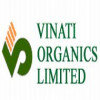
Vinati Organics

Atul

Navin Fluorine International
- Home >
- Interviews >
- Deccan Fine Chemicals Interview Questions >
- Deccan Fine Chemicals Executive Trainee Interview Questions




